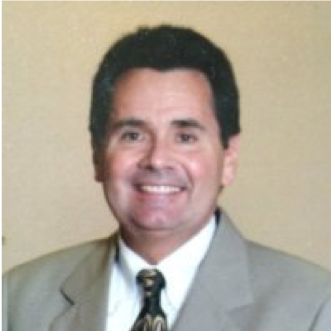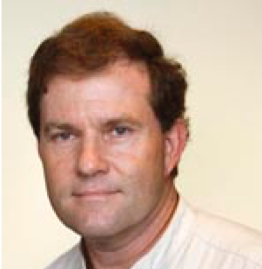Executive leadership & Board of directors
CEO, Co-Founder and Director
John C. Fini
Mr. Fini has over 35 years of leadership experience in the management of sponsored research, with a specific focus on financial stewardship & compliance.
Mr. Fini began his career at Brigham and Women’s Hospital (a Harvard Medical School affiliate). He moved from there to Dartmouth Medical School and then to the University of Lowell. Prior to entering the biotech entrepreneurial space, Mr. Fini spent more than 17 years overseeing a portfolio of nearly $1 billion dollars as the Financial Director for Research Management at the Massachusetts General Hospital (a Harvard Medical School affiliate), and then at Partners HealthCare System (a merger of multiple Harvard affiliated hospitals, including MGH).
After leaving the Harvard hospitals, Mr. Fini spent several years doing private consulting, serving academic clients on both the east and west coasts. This led to the founding of Proteris Biotech in 2014.
Chief Scientific Officer, Co-Founder and Director
M. Elizabeth Fini, Ph.D.
Dr. Fini is a molecular biologist and biochemist, best known for her scientific contributions to our understanding of diseases of the eye. She has more than 30 years of leadership experience in academia as a scientist, professor, mentor and administrator. She currently serves as Professor of Ophthalmology, Tufts University School of Medicine at Tufts Medical Center in Boston where she holds NIH and foundation grants in support of her basic research program. She is a co-inventor on two patents.
Dr. Fini’s first faculty appointment was at Harvard Medical School. From there she moved to Tufts University School of Medicine, then to the Bascom Palmer Eye Institute, University of Miami Miller School of Medicine to serve as Professor, Scientific Director and the Walter G. Ross Chair. In 2008, Dr. Fini joined USC in Los Angeles as Professor and Vice Dean for Research, and Director, USC Institute for Genetic Medicine at the Keck School of Medicine. She returned to Tufts in 2018.
Dr. Fini earned her doctoral degree in biology at Dartmouth College and did postdoctoral training at Dartmouth Medical School and the Massachusetts Institute of Technology.
Director
Kenneth J. Mandell, M.D., Ph.D.
Dr. Mandell is a Harvard-trained ophthalmologist and serial entrepreneur with broad drug development experience. He has personally contributed to more than a dozen Investigational New Drug (IND) applications and overseen the conduct of numerous Phase 1-3 clinical. He has more than 10 granted U.S. patents and is co-inventor of TYRVAYA® (Viatris Inc.) treatment for dry eye disease and Aldeyra’s reproxalap eye drop for ocular inflammation. Dr. Mandell is founder and CEO of LayerBio, an MIT spinoff developing novel sustained-release implants for ocular applications and previously served as Chief Medical Officer of Aramis Biosciences, Intergalactic Therapeutics, Neurotech Pharmaceuticals, and Noveome Biotherapeutics.
Business Advisors
Patenting and Licensing, Christopher Moulding, M.B.A.
Mr. Moulding recently retired from the position of Associate Director in the Office of Technology Licensing at the City of Hope, Duarte, California. He previously served in a similar capacity at the University of Southern California, where he worked closely with Dr. Fini in developing the patent portfolio that Proteris Biotech has licensed.
Mr. Moulding was involved in Technology Transfer for over 25 years, having held licensing positions at UCLA, Caltech, Howard Hughes Medical Institute, in addition to USC and City of Hope. Prior to that, he worked at Genentech, Chiron, and Systemix in business development, and was a co-founder of Recombinant Capital.
Mr. Moulding began his career as a research associate at Harvard Medical School and NIH, and thereafter he earned an M.B.A. from Stanford Business School.
Information Technology, George Calapai, M.Eng
Mr. Calapai specializes in building achievable, common-sense information security programs based on best practices that emphasize cybersecurity, IT risk management, and compliance to establish baseline security and enable continuous improvement. He currently serves as Vice President of Technology for Mangrove Management Partners. His past biotech experience was as Director of Information Technology for InVivo Therapeutics, an MIT start-up.
Scientific and Medical Advisory Board
Scientific/Medical
Stephen C. Pflugfelder, M.D.
Dr. Pflugfelder is an academic ophthalmologist and clinician-scientist with internationally recognized expertise in dry eye. He currently serves as Professor, Director of the Ocular Surface Center, and the James and Margaret Elkins Chair in Ophthalmology at the Cullen Eye Institute of Baylor College of Medicine in Texas.
Dr. Pflugfelder has made seminal contributions to the field of dry eye, being responsible for establishment of much of our current understanding of the disease. He developed the first mouse model of dry eye disease and identified a causal role for MMP9 in collaboration with Dr. M. Elizabeth Fini.
Shigeru Kinoshita, M.D., Ph.D.
Dr. Kinoshita is an academic ophthalmologist and clinician-scientist with internationally recognized expertise in dry eye. He served from 1992-2014 as Professor and Chair of the Department of Ophthalmology, Kyoto Prefectural University of Medicine in Kyoto, Japan. He currently serves as Professor and Chair, Department of Frontier Medical Science and Technology for Ophthalmology. He co-authored on our first team paper demonstrating clusterin efficacy in treating mouse dry eye.
Over the course of his career, Dr. Kinoshita has built a reputation in the global ophthalmic community as an innovative researcher and a pioneering spirit, particularly in the fields of ocular surface and corneal wound healing. His group was the first to identify clusterin expression in the corneal epithelium its down-regulation in severe mucin-deficient dry eye, and its localization in amyloid deposits associated with corneal dystrophies. His group also identified clusterin expression by the corneal endothelium and its presence in the aqueous humor.
Reza Dana, M.D., M.Sc., M.P.H.
Dr. Dana is an academic ophthalmologist and clinician-scientist with internationally recognized expertise in the immunology of dry eye. Since 1995, he has been a full-time member of the faculty at Harvard Medical School, Boston, Massachusetts. He currently serves as the Claes Dohlman Professor and Vice Chair of Ophthalmology. He is also the Associate Chief of Ophthalmology for Academic Programs at the Massachusetts Eye and Ear, Senior Scientist & W Clement Stone Scholar at the Schepens Eye Research Institute, Director, Cornea & Refractive Surgery, Massachusetts Eye and Ear, and Director, Cornea Center of Excellence at the Schepens Eye Research Institute.
Dr. Dana has made seminal contributions to our understanding of the molecular and cellular mechanisms of inflammation pertaining to the ocular surface, including dry eye.
Joseph T. Barr, O.D., M.S.
Dr. Barr is an academic optometrist and clinician-researcher with more than 30 years of senior leadership experience in both academic medicine and the ophthalmic pharmaceutical industry. He currently serves as an emeritus professor at The Ohio State University College of Optometry and as Chief Medical Officer for Lentechs.
Dr. Barr’s research has focused in the area of clinical cornea. He began his academic career in the School of Optometry at The Ohio State University, where he rose to the rank of full professor and served as an associate dean and chief of the Contact Lens Clinical Service. In 2007, he accepted a vice president position with Bausch & Lomb, one of the world's largest suppliers of eye health products. He returned to Ohio State several years later.
Scientific
Mark R. Wilson, Ph.D.
Dr. Wilson is a molecular biologist and biochemist with more than 30 years of leadership experience in academia as a scientist, professor, mentor and senior administrator. He is currently a Senior Professor in the School of Biological Sciences at the University of Wollongong, where he previously served as Associate Dean for Research.
Dr. Wilson discovered the molecular chaperone function of clusterin and is arguably the world’s expert in the field. His lab is leading the development of methodologies for the large-scale production of recombinant human clusterin.
Dr. Wilson received his BS and PhD from the University of Sydney.
Sharmila Masli, Ph.D.
Dr. Masli is an immunologist with over 20 years of academic research experience. She currently serves as Associate Professor of Ophthalmology at Boston University Chobanian & Avedisian School of Medicine. Prior to joining BU, Dr. Masli was an Assistant Professor of Ophthalmology at Harvard Medical School.
Dr. Masli’s research focus is in ocular immunology as it pertains to ocular inflammatory conditions. She has identified novel molecular and cellular immunoregulatory pathways and helped establish and validate a pre-clinical mouse model of ocular surface disease. Translational studies based on her laboratory findings have led to identification of genetic and tear biomarkers with clinical utility in diagnosis and stratification of dry eye patients. She has collaborated and consulted with several industry partners on early drug development programs.
Dr. Masli received her Ph.D. from Northeastern University in Boston and completed her post-doctoral fellowship in ocular immunology at Harvard Medical School.
Shravan K. Chintala, Ph.D.
Dr. Chintala is a molecular biologist and biochemist with over 20 years of academic experience in ophthalmology and vision research. With award of his first NIH grant, he accepted a faculty position at the Eye Research Institute of Oakland University in Detroit, where he received tenure. He left this position in 2016 for business opportunities, working for a period as Director of Laboratory Operations for Proteris Biotech.
Dr. Chintala received his Ph.D. from Osmania University in India. He obtained formal training in cell biology at the Cleveland Clinic Foundation and in molecular biology and neuroscience at M.D. Anderson Cancer Center. He began his faculty career in ophthalmology at Tufts University School of Medicine under the mentorship of Dr. Fini.
Shinwu Jeong, Ph.D.
Dr. Jeong is a molecular biologist and biochemist with more than 25 years of experience in academia and the pharmaceutical industry. He currently serves as Associate Professor of Research in the Department of Ophthalmology at the Keck School of Medicine of USC in Los Angeles. His research focus is ocular surface/dry eye and retinal degenerative disease. He is a co-inventor on five patents.
Dr. Jeong received his Ph.D. from Purdue University and completed postdoctoral training at the Fred Huchinson Cancer Research Center at the University of Washington in Seattle. From there, he joined the pharmaceutical industry, but returned to academia in 2003. He began his faculty career in ophthalmology at the Keck School of Medicine of USC under the mentorship of Dr. Fini.














